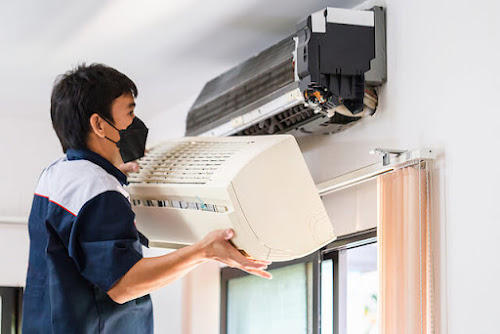AC Repair vs. Replacement: Which is More Cost-Effective?
When deciding between AC repair and replacement,
cost-effectiveness depends on various factors such as the extent of the
problem, the age of the system, energy efficiency, and repair costs. Let's
explore both options:
1. AC
Repair: Air conditioning repair in Melbourne can be a cost-effective solution under certain circumstances:
a. Minor Issues: If the problem is minor,
such as a faulty capacitor or a refrigerant leak that can be easily repaired,
it is usually more cost-effective to opt for repairs.
b. Relatively New System: If your air
conditioner is relatively new (less than 10 years old) and has been
well-maintained, repairing specific components may be a reasonable choice.
c. Repair Costs:
If the repair costs are significantly lower than the cost of a new AC unit and
the repairs can restore the system to a good working condition, repair may be
the more cost-effective option.
2. AC
Replacement: There are situations where replacing the AC unit is more
cost-effective in the long run:
a. Age of the System: If your air
conditioner is more than 10-15 years old, it is nearing the end of its
lifespan. Older units tend to experience more frequent breakdowns and have
lower energy efficiency. In such cases, investing in a new, energy-efficient
system can lead to long-term savings on energy bills and repair costs.
b. Major Issues: If the AC system has
significant and expensive problems such as a compressor failure or a damaged
condenser coil, it may be more cost-effective to replace the unit rather than
repairing it.
c. Energy Efficiency: Newer air
conditioning systems are designed to be more energy-efficient, resulting in
lower energy consumption and reduced utility bills. Over time, the savings in
energy costs can offset the higher upfront investment of a replacement.
To make an informed decision, it is advisable to consult a
qualified HVAC professional who can assess the condition of your AC system, provide
a cost analysis, and offer recommendations based on your specific situation.
They can help you evaluate the cost-effectiveness of repairs versus replacement
based on factors such as the age of the unit, repair costs, and long-term
energy savings.
Certainly! Here are
some additional factors to consider when deciding between AC repair and
replacement:
3. Frequency of Repairs: If your
air conditioner requires frequent repairs or has a history of breakdowns, it
may indicate underlying issues or wear and tear. Constantly investing in
repairs can add up in costs over time. In such cases, replacing the unit might
be a more cost-effective solution, providing you with a more reliable and
efficient cooling system.
4. Energy
Efficiency of the Current System: Older AC units tend to have lower energy
efficiency ratings compared to newer models. If your current system has a low
SEER (Seasonal Energy Efficiency Ratio) rating, upgrading to a newer, more
energy-efficient model can result in substantial energy savings over the long
term.
5. Changes
in Cooling Needs: If your cooling needs have changed, such as an addition
to your home or a change in occupancy, your current AC system may no longer be
adequate. In these situations, replacing the unit with a properly sized system
can ensure optimal cooling and energy efficiency.
6. Environmental
Considerations: If your current air conditioner uses outdated refrigerants
like R-22 (Freon), it may become increasingly costly to repair and recharge the
system due to the phase-out of such refrigerants. Upgrading to a new system
that uses environmentally friendly refrigerants can be a more sustainable
choice.
7. Warranty
Coverage: Check if your current AC unit is still under warranty. Some
repairs or replacement parts may be covered, which can help offset the costs.
However, if the warranty has expired, repair costs may be fully borne by the
homeowner.
Ultimately, the cost-effectiveness of AC repair versus
replacement will depend on your specific circumstances. A professional HVAC
technician can evaluate the condition of your system, consider these factors,
and provide personalized recommendations based on your needs and budget.

Comments
Post a Comment